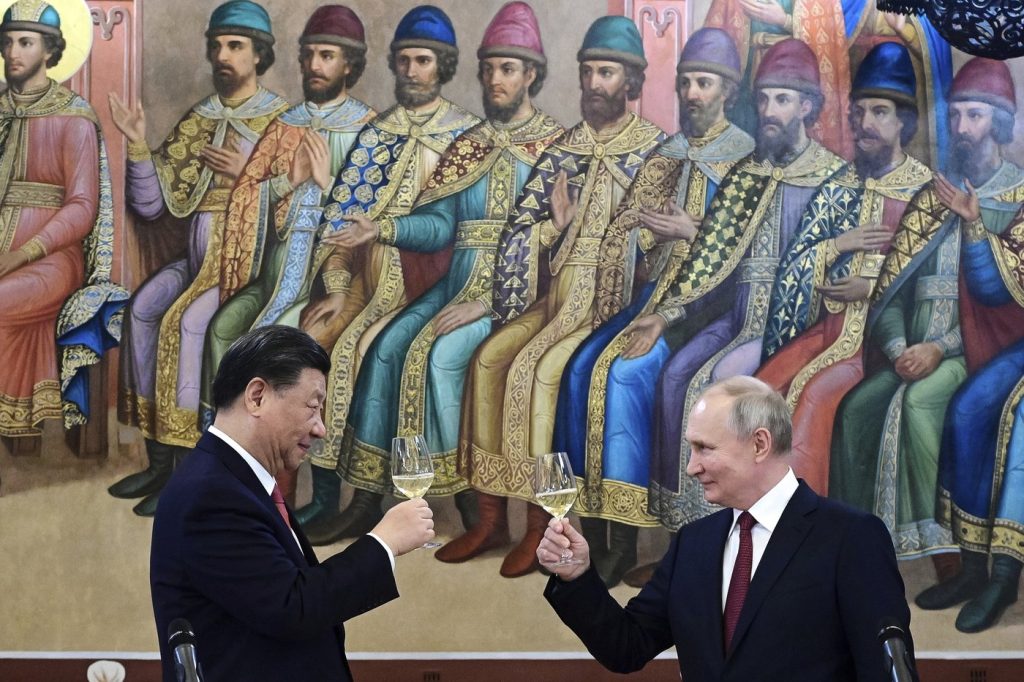On the occasion of the 80th anniversary of the defeat of Nazi Germany in World War II, Russia's President Vladimir Putin is preparing to host the leaders of China, Brazil, and several other nations in Moscow for the Victory Day celebrations on May 9. This event has evolved into Russia's most significant secular holiday, featuring a grand parade through Red Square among other ceremonial activities. The occasion emphasizes Moscow’s ambitions to showcase its power and solidify alliances while countering Western influence amidst the ongoing war in Ukraine.
Political analyst Nikolai Petrov highlighted that the significance of this day lies in demonstrating the breadth of support Russia enjoys from various nations. The lineup of attendees this year starkly contrasts with previous Victory Day celebrations that featured prominent Western leaders, reflecting the current geopolitical climate.
Putin has labeled Chinese President Xi Jinping as "our main guest" for the festivities, emphasizing the importance of their forthcoming discussions on both bilateral and global matters. Xi's visit will span four days, during which he and Putin are expected to address trade relations, particularly focusing on Russia's oil and gas supplies to China. They will also discuss cooperation within the BRICS bloc, which now includes more countries than its original members: Brazil, Russia, India, China, and South Africa.
The personal rapport between Putin and Xi, strengthened over 40 meetings, has played a pivotal role in consolidating their "strategic partnership." China has emerged as a key ally for Russia, providing diplomatic backing since the onset of the Ukraine war, and has become a leading market for Russian natural resources, compensating for the financial losses incurred due to Western sanctions.
While Beijing has refrained from supplying weapons for the conflict in Ukraine, it has consistently condemned Western sanctions and has blamed the West for perceived threats against Russia. On the military front, there have been reports of Chinese nationals, described as mercenaries, fighting alongside Russian forces in Ukraine, although Beijing has denied any formal involvement.
Another expected attendee, India’s Prime Minister Narendra Modi, who has historically maintained strong ties with Russia, canceled his trip due to recent tensions with Pakistan following a terrorist attack in Kashmir. Despite the strengthening Russia-China alliance, India remains cautious but seeks to maintain its relationship with Moscow, particularly due to its reliance on Russian defense supplies.
Brazil's President Luiz Inácio Lula da Silva will also attend the celebrations, marking his first official visit to Russia since the start of the Ukraine war. Other expected guests include Slovakia's Prime Minister Robert Fico, who has openly defied EU directives regarding his visit, and Serbia's President Aleksandar Vucic, despite facing health issues that may affect his attendance.
The Kremlin's spokesperson, Dmitry Peskov, suggested that the invitations reflect the significance of Victory Day and symbolize a broader international support network surrounding Russia, involving nations from both the Global South and parts of the West. Ushakov noted that leaders from 29 countries are anticipated at the event, and more than 15 bilateral meetings are scheduled. While the U.S. Ambassador Lynne Tracy has been invited, it remains uncertain if any U.S. officials will attend.
Historically, the Victory Day celebrations saw the participation of top Western leaders, especially during warmer periods in Russia-West relations following the Soviet Union's dissolution in 1991. However, attendance from Western officials has dwindled since Russia's annexation of Crimea in 2014, with subsequent years seeing deteriorated relations following the Ukraine conflict. Former U.S. President Donald Trump has hinted at possibly visiting Moscow in the future but has not confirmed attendance this year.










